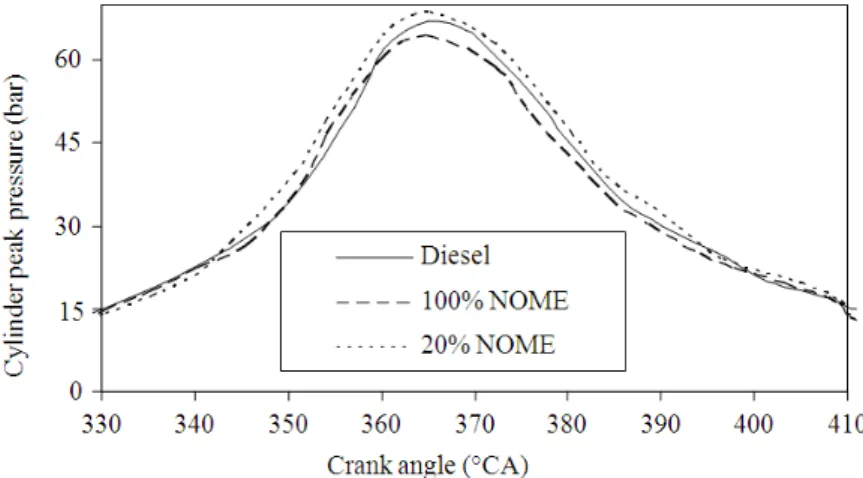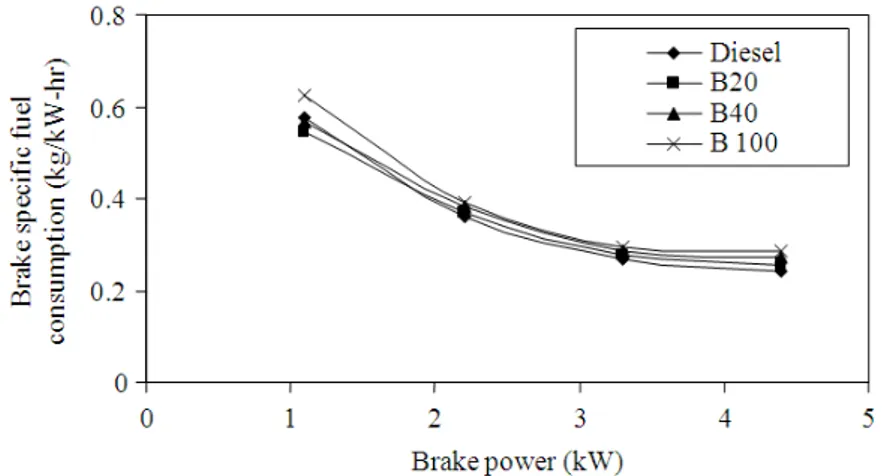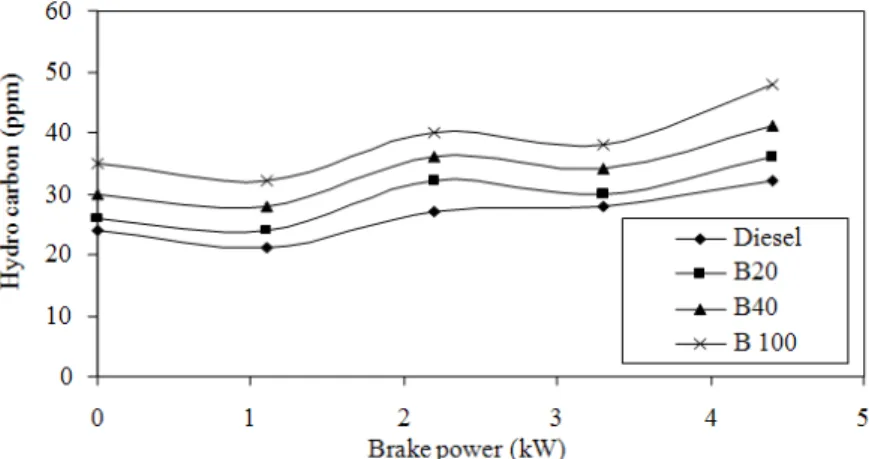COMBUSTION, PERFORMANCE AND EMISSION CHARACTERISTICS OF DIESEL ENGINE WITH NEEM OIL METHYL ESTER AND ITS DIESEL BLENDS
Texto
Imagem




Documentos relacionados
The effects of combustion thermal spraying parameters namely combustion pressure, feeding rate, and carrier gas on the wear resistance, friction coefficient, and Knoop hardness of
The effects of diesel-natural gas substitution ratios, engine speed, and load on the equivalent brake specific fuel consumption and gaseous emissions of
Further, it was found that the brake power and the volumetric efficiency of the engine drop down when the engine is powered by hydrogen, while the specific fuel consumption
Fuel consumption, brake power, brake thermal efficiency and exhaust gas temperature were measured with different blends of jatropha and castor methyl ester.. Results
The final mathematical model developed can be used to predict the Brake Thermal Efficiency and specific fuel consumption by substituting the values of the respective engine and
The problem studying in this work is to detect cylinder imbalance in operating medium-speed six cylinder diesel engine by using combustion pressure variation and correlating
Performance and emission characteristics were evaluated for three non-edible vegetable oils, including thumba oil, jojoba oil, neem oil and jojoba methyl ester with variations in
Use of Karanja oil methyl ester biodiesel in a CIDI engine was found highly compatible with engine performance along with lower exhaust emission as compared to diesel fuel but
